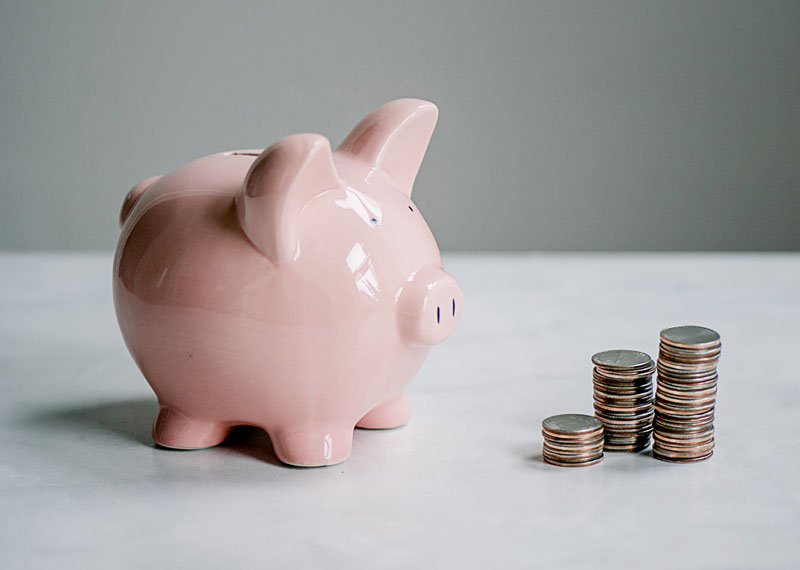Emergency Loans Online
An emergency loan can save your life when you need money quickly for something you didn’t plan. Emergencies can be anything from medical bills to unexpected travel costs, car repairs, or household costs. Getting an emergency loan does not depend on your past financial situation. Before giving you emergency cash loans, most personal loan lenders will not check your credit score to see if you are creditworthy.
Even though emergency loans can get you money quickly, some loans, like payday loans or home equity loans, may have very high-interest rates. In the long run, these charges could cost you more while benefiting emergency loan lenders. Here’s what you need to know about emergency loans, which ones to avoid, and options worth considering. For more information on how emergency loans can help you out, get in touch with Money-Wise today!

What Are Emergency Loans Online?
Emergency loans are personal loans you can use to pay for unexpected expenses. These loans can cover building maintenance, medical bills, or ceremony costs. You can’t wait a few days for your loan to be paid off if you need money immediately. So, look for personal loan lenders who pay out loans quickly.
How Emergency Loans Work?
Emergency loans can be secured personal loans or unsecured personal loans. For secured loans, you must use your assets as security, usually a car or other assets. On the other hand, you can get an unsecured personal loan based on your credit history alone. Some emergency loans, like an emergency payday loan or a home equity loan, can have very high-interest rates and charges. When you’re in a difficult position and need money quickly, emergency cash loans can be very tempting because they are easy to get. However, it would help if you were careful and only took out the best emergency loans you can pay.
You can apply for an emergency fund from the comfort of your home. All you need is personal details, including your bank account (saving account), where the online lender can pay in the loan proceeds if approved. These loans may not require a minimum credit score and usually have no origination fees. However, some emergency loans also may not require a minimum annual income or proof of employment. This assures the online lender you can pay when you borrow money.
Types of Emergency Loans
There are many emergency loans, from traditional installment loans to high-interest payday loans. You can also get a credit card cash advance, which lets you lend money. Here are some of the types of emergency loans online.
-
Emergency Personal Loans
Several institutions offer secured personal loans. You need to find the one that fits your needs best. You can get personal loans from banks, credit unions, and online lenders. Personal loans are Installment loans, which means you’ll pay them back in small amounts over some time. There are two types of personal loans: unsecured personal loans and secured personal loans.
You are expected to pay off your loan over an agreed period at an agreed interest rate. Interest rates and fees can vary from one lender to the next, but your rate usually depends on your credit and the money you make. Since there is collateral, most online lenders are willing to offer secured personal loans. Most of the time, you can get your money right away, from the day you apply to a few business days later. To find the best emergency loans, compare rates from multiple personal loan lenders.
-
Emergency Cash Advance
A cash advance is primarily a short-term loan your credit card issuer gives you. When you get a cash advance, you take loans from the credit line on your card. Poor credit is a major drawback because it limits how much money you can get. Although having good credit is ideal, you can still get credit card cash advances even if you have bad or poor credit. After looking at your credit report, some lenders may still offer you a cash advance.
When you get a cash advance, you use your credit card to get money from your bank or an ATM. You can pay the cash advance back when you pay your credit card bills. You can also get cash online if you meet the lender’s requirements. But keep in mind that APRs for cash advances are usually higher. Most cash advances also come with a fee that is a fraction of the amount utilized.
-
Emergency Payday Loans
People with bad credit who need instant loans often go to payday lenders. Payday loans are short-term loans payable in a short time. Most payday loans range from $300 to $1,000, and the money is usually taken from your next paycheck. Payday loans are among the best emergency loan alternatives to help you pay for unexpected expenses.
Payday loans are also one of the best emergency loans because they give you access to emergency cash immediately. The interest rates, however, can be as high as 400%. It’s important to remember that getting an emergency payday can lead to a bad debt cycle, and it’s also crucial to read the loan terms before signing up for one.
There are also minimum credit history requirements for payday emergency loans. Payday loans are also based solely on your income. But if you can borrow more, make sure you have affordable monthly payments. Most of the time, the lender will ask you to write a check for the total amount you owe, with a date on it. They would then cash the check on the due date regardless of the amount in your account. You can roll over payday loans if you can’t afford to repay in time. However, some penalties will put you in further debt.
-
Emergency Payday Alternative Loans
If you need a loan quickly and want to avert payday loans, you can get an alternative (PAL) loan. You can use these loans to pay for emergency expenses as they are cheaper than other emergency loan options. Some credit unions offer PALs so their members can get cash quickly without needing a payday loan. Most loans are between $300 and $1,000, and you have six months to repay them in full. The loan approval process is also fast and easy.
The National Credit Union Administration says that the most interest federal credit unions can bill on PALs is 28%. Even though that’s still pretty high, it’s cheaper than you’d pay for a payday loan. The loan terms are also adaptable, and the loan agreement is straightforward. PALS are, therefore, one of the best kinds of emergency loans you can get to pay for unexpected expenses.
Choosing an Emergency Personal Loan
Here are some things to watch out for when looking for an emergency loan.
-
Repayment Terms
Depending on the loan type, you may have months or years to repay your loan. Most payday lenders give you two to four weeks to repay an emergency loan. You can pay back personal loans, PALs, and cash advances over months or years, making the payments easier to handle.
-
Security
Personal loans, cash advances, and PALs are all unsecured loans, but some emergency loans need security. Payday lenders could seize your property if you don’t repay in time. Before taking out a line of credit that requires collateral, make sure you have a plan for paying it back and a budget. It will also help if you negotiate good repayment terms.
-
The Total Loan Amount
Most loans for emergencies are not very big, and most are between $300 and $1,000. A personal loan may be your best option if you need money in an emergency.
Alternatives to Emergency Loans
Before taking on any debt to pay for emergency expenses, there are options you could pursue. For example, if you already have a job, you can ask your human resources department for a pay advance. You can get a pay advance to help you cover unexpected expenses.
Also, you can ask for help. Even though it can be hard to ask friends or family for money, it can be a better option than taking out a loan. If you ask for assistance, ensure you and the person agree on clear repayment terms. You should also agree on whether it’s a loan or a gift. If it’s a loan, talk about repayment terms and whether or not there will be interest.
Get Your Emergency Loans Today!
Borrowing money should be your last resort, but emergency funds can be a lifesaver. While the basic requirements include being a US permanent resident, having proof of income, being 18 years and above, and having a savings account, credit history, or credit scores may be checked.
However, before you take an emergency loan, read the terms. Reach out to Money-Wise today for more financial tips!

